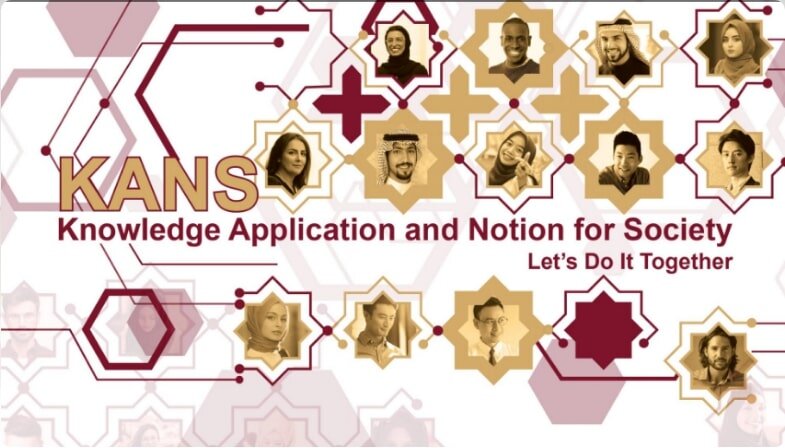KANS invites Muslims to offer solutions for scientific challenges

TEHRAN –The third edition of KANS (Knowledge Application and Notion for Society) scientific competition will be held this year, calling for scholars, researchers, and innovators from Islamic countries to show their technological achievements or solutions for challenges.
Scholars, researchers, innovators, university students, and professors under 45 years of age submitted their scientific and technological ideas and achievements in the form of a 5-minute video presentation to participate in KANS 2023.
The event aims at finding the best scientific solutions to spot and tackle the problems of society while having accomplished the goals of using the character and capacities of the expert community, providing an accumulation of scientific works, raising the level of motivation and creativity in young elites, establishing a platform to identify and exchange scientific and technological ideas, and having researchers engaged in purposeful and sustainable interaction.
The first edition of the competition was held in 2017 in five fields of health, energy, economy, water and environment, information, and communication technology, with the participation of more than 600 technologists and young researchers from the country.
The second edition was also held in 2020 in 6 areas of water, environment and energy, health and medical technology, information and communication technology, economy, banking and financing, transportation, and mining and mineral industries, with the participation of nearly 700 technologists and scientists from more than 20 countries.
The third edition hosts the best projects of young scientists of the Islamic world in six areas of electricity, electronics and robotics, information and communication technology and artificial intelligence, water, energy and environment, health and medical equipment, agriculture and food industry, and mining and mineral industries.
Each of these areas includes a section called the free section and a challenges section. In general, the free sector in all fields is the idea of a conceptual design of a prototype or a new product that solves a challenge in the health and medical equipment sector or helps to improve the level of competence in that field.
Agricultural disease monitoring and forecasting tools, orchard spraying machines, early detection of disease in fruit plants using deep learning, and integrated agriculture equipped with the Internet of Things are some of the challenges in the field of food and agriculture industries.
Artificial intelligence and brain tumor imaging, artificial intelligence and retinal disease (retinopathy), artificial intelligence in pharmaceuticals, and nanosensors for cancer diagnosis (biomedical applications) are some of the challenges in the field of health and medical equipment.
The pollution caused by plastic and microplastics, electronic waste pollution, cleanup of oil-contaminated soils, development of wastewater treatment technologies, environmental issues, water resources management, and energy consumption management are some of the challenges in the field of water, energy, and environment.
In the field of electrical, electronics, and robotics, attracting students to STEM science, technology, engineering, and math programs, wireless energy transfer for charging electronic cars, FMCW radar for commercial applications, organic solar cells for powering electronic devices, and sensors are important.
In the field of information and communication technology and artificial intelligence, unsupervised machine learning, justifiable artificial intelligence, the expansion of educational justice through technology, educational assistive technology for autism, online identity verification, gastrointestinal systems, and remote ophthalmology have been presented as a challenge.
In the field of mining and mineral industries, extraction and separation of rare earth elements from concentrate, conversion of calcium sulfate as a by-product of a chemical process into building plaster, methods of extraction and separation on an industrial scale, extraction of natural gas from coal layers, and determination of reserves and accurate grading of minerals are discussed.
MG
Leave a Comment